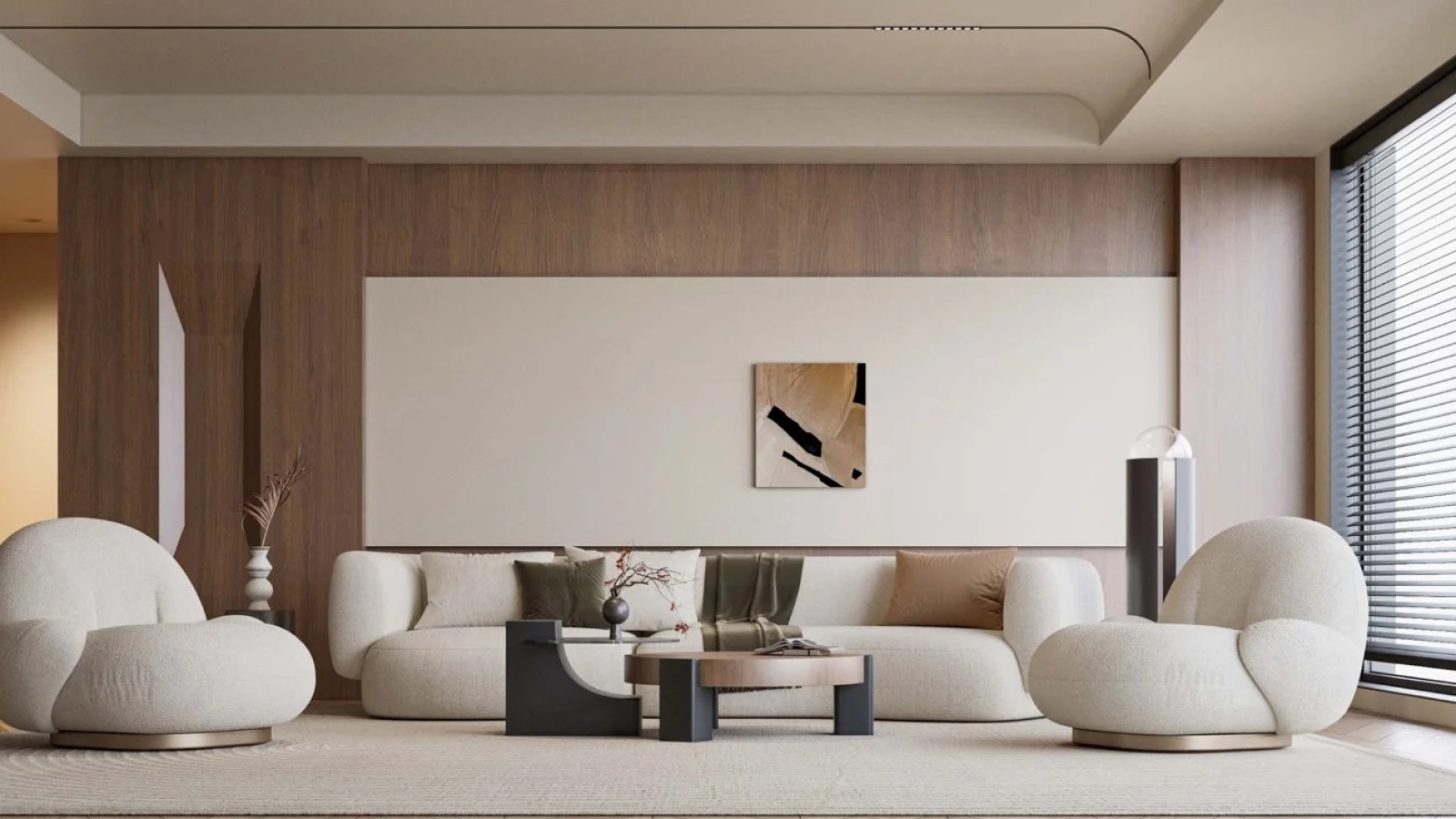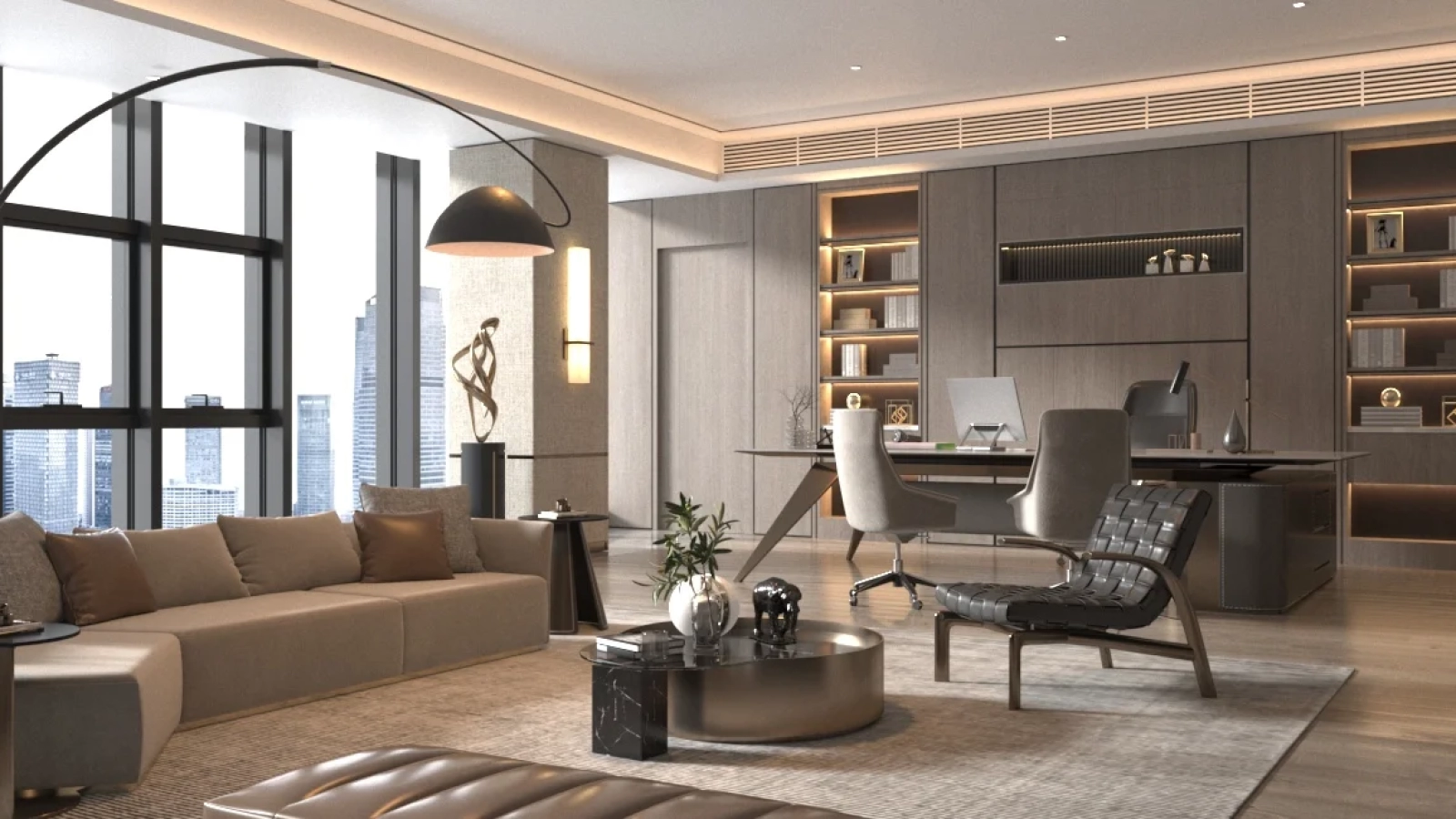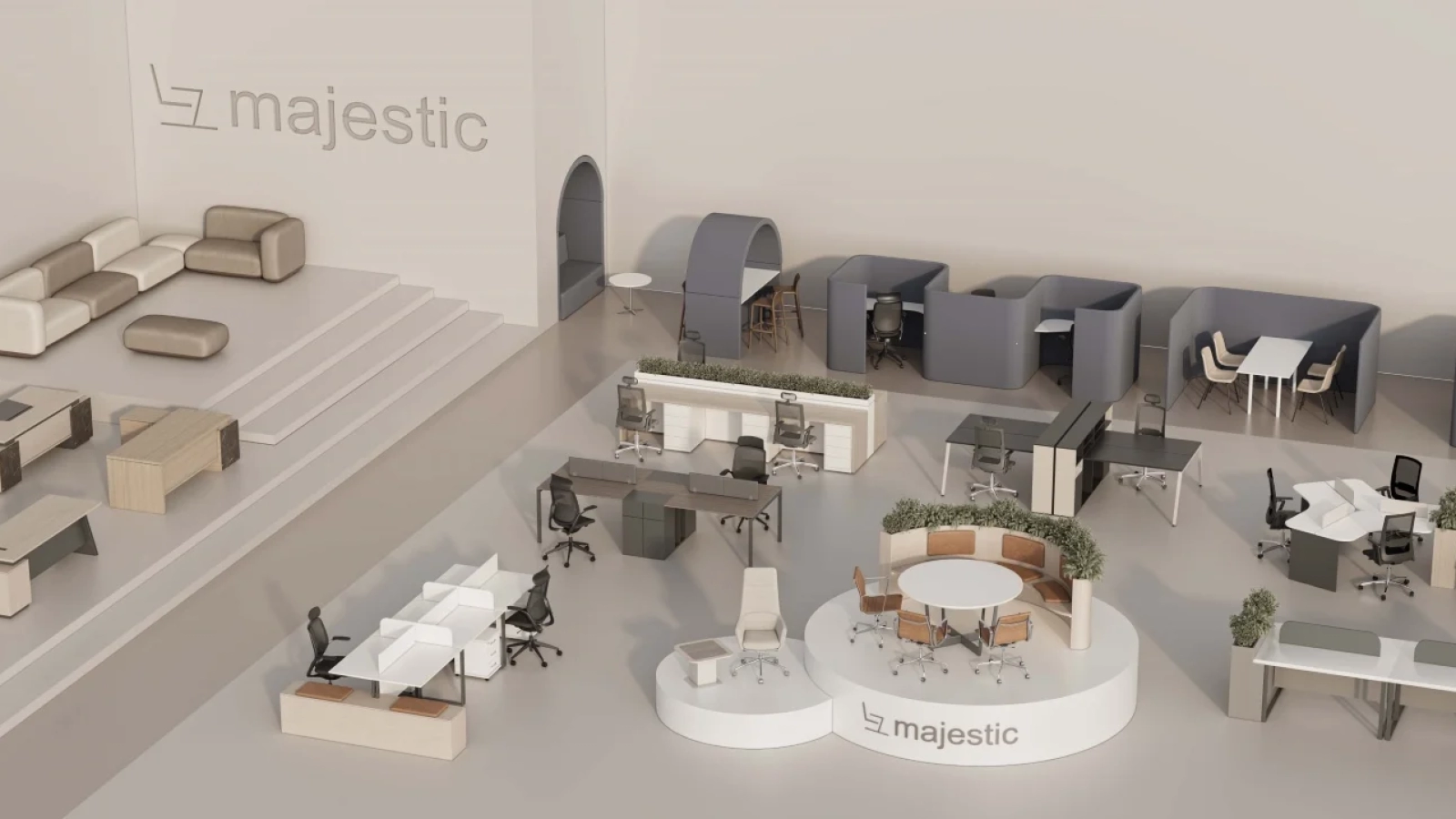Introduction
Top interior designing Companies in Dubai focus on creating spaces with premium furniture that evolves alongside your lifestyle without requiring expensive overhauls. This approach defines excellence in Dubai’s interior design landscape.
Homes in Dubai transform more rapidly than most homeowners expect. As families expand, careers evolve, and daily routines shift, living spaces must adapt accordingly. What separates exceptional homes from those requiring constant renovations isn’t following the latest trends—it’s implementing strategic interior solutions that genuinely reflect how residents live.
At Majestic Home, we lead the Top Interior Designing Companies in Dubai | Leading Fitouts in 2026 creating top interior designs in Dubai and providing premium furniture that withstands lifestyle evolution, harsh climate conditions, and the passage of time. Through extensive work across Dubai’s diverse residential properties, we’ve discovered that exceptional design represents an investment with lasting returns. When interior solutions emphasize adaptability and superior quality from the outset, homes continue serving their owners effectively for decades. The alternative tells a familiar story—homeowners forced to replace entire spaces because their original design couldn’t accommodate natural life progressions.
Why Adaptive Interior Solutions Define Top Interior Designs in Dubai
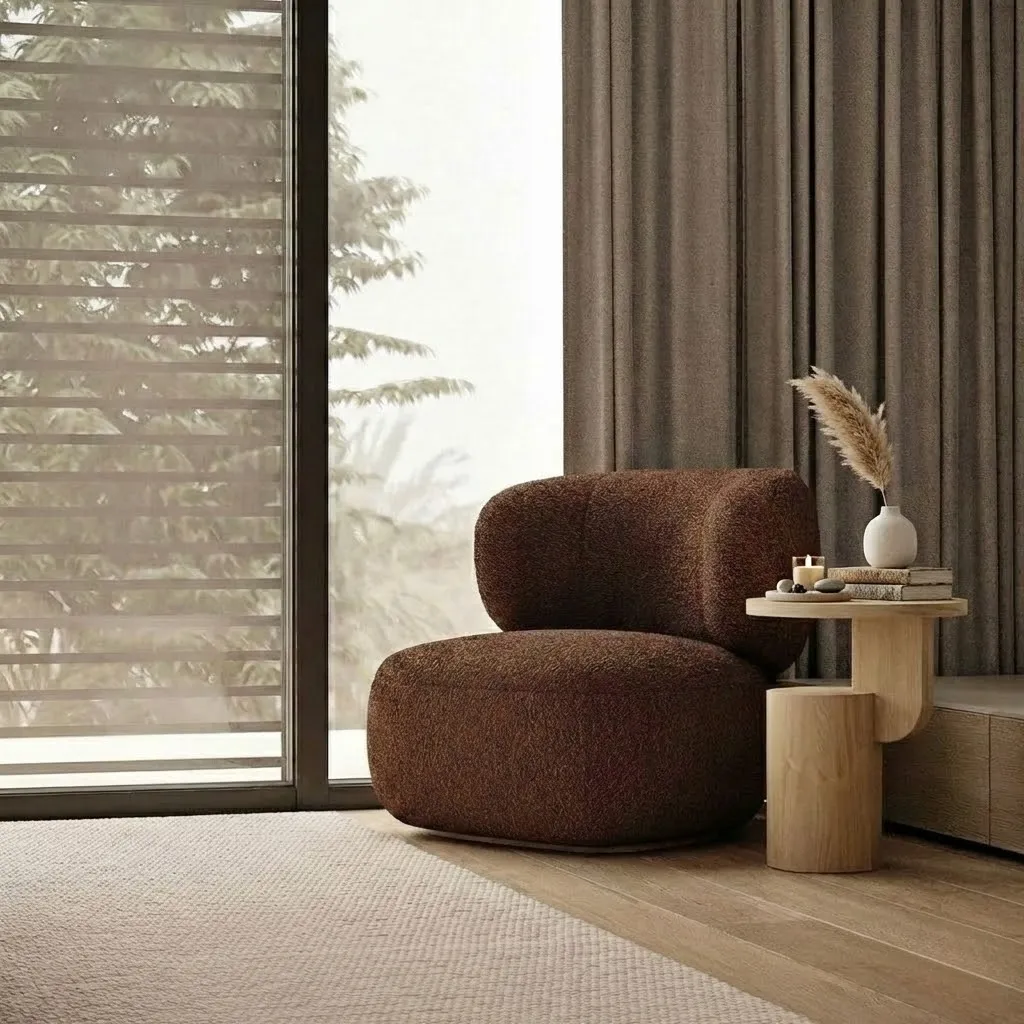
Top interior designs in Dubai address climate challenges, lifestyle evolution, and long-term material durability rather than fleeting aesthetic preferences. This adaptation-focused methodology prevents expensive renovations while ensuring residences remain practical as families grow and change.
Dubai’s interior design sector has evolved significantly over recent years. Property owners once prioritized pure aesthetics—what appeared impressive in showrooms. Today, they’re asking more thoughtful questions: Will this endure? Can it transform? How will this accommodate our growing family or career changes? These questions matter because truly exceptional design survives both environmental pressures and major life transitions.
Climate Resilience, Lifestyle & Material Durability
Premium furniture in Dubai must endure intense heat, significant humidity variations, and continuous air conditioning exposure. Materials performing well in temperate environments frequently deteriorate within two to three years under Dubai conditions, making climate-conscious selection crucial for lasting value.
We’ve learned these lessons through direct experience. Dubai’s climate challenges certain materials with remarkable speed. Extreme temperatures warp specific wood types within months—we’ve examined failed connections where adhesives literally liquefied during peak summer temperatures. Interior humidity variations between climate-controlled spaces and outdoor areas stress wood veneers and trigger delamination. Surface treatments that maintain perfection in European environments crack and deteriorate here within twelve months.
At Majestic Home, we exclusively select materials after observing their actual performance in Dubai homes across multiple years. Certain timber varieties handle local conditions beautifully. Others fail regardless of their cost. Construction techniques matter more in this environment than in moderate climates—specific joinery methods that succeed elsewhere fail under our temperature variations.
Beyond climate, Dubai lifestyles generate unique requirements. We serve expatriate families relocating between apartments and villas regularly. Parents needing nurseries that transform into study areas. Professionals whose guest bedrooms became permanent workspaces in 2020 and remained so. Top interior designs in Dubai integrate these transitions into initial planning rather than addressing them as problems requiring costly solutions later.
Timeless Design vs Temporary Trend Investments
Leading fitouts in 2026 emphasize enduring spatial arrangements and superior materials over fashionable finishes that quickly become outdated. Investing in durable foundations enables homeowners to refresh accessories and decorative elements affordably while preserving core design quality for years.
Design trends shift faster than renovation budgets permit. That color scheme everyone desired three years ago? It already appears dated. Statement furniture dominating social media loses appeal when digital algorithms evolve. We’ve worked with clients requesting complete room transformations simply to move beyond trends they committed to just eighteen months prior.
The intelligent approach distinguishes permanent elements from temporary expressions. Neutral foundations in flooring, built-in features, and major furniture provide stability. Superior construction ensures these components remain structurally sound for decades—we maintain sofas and dining sets still functioning flawlessly after fifteen years of intensive family use. Meanwhile, adaptable accents through fabrics, lighting, and decorative pieces allow style updates without touching fundamental infrastructure. This layered strategy delivers both contemporary appeal and sound financial planning.
Furniture & Fitouts as Strategic Investments
Premium furniture in Dubai represents capital investment in assets maintaining functional and aesthetic value for ten to fifteen years. Custom fitouts eliminate hidden expenses from inadequate spatial planning, furniture incompatibility, and early material deterioration common with mass-market alternatives.
Approaching furniture as investment rather than mere purchase fundamentally changes decision-making. We guide clients to calculate annual cost of ownership, not just initial prices. A beautifully constructed sofa used daily for twelve years costs substantially less annually than three budget sofas replaced every four years. This calculation doesn’t even account for the time, effort, and disruption each replacement demands—coordinating deliveries, disposing of broken furniture, rearranging spaces.
Custom Furniture vs Ready-Made Solutions
Custom furniture designed for specific spaces eliminates dimensional waste, ensures superior material selection, and permits modifications as requirements evolve. Mass-produced items rarely match Dubai property proportions perfectly and utilize standardized materials unsuitable for local climate demands.
Mass production optimizes manufacturing efficiency and shipping economics—not your residence, not Dubai’s environment. Standard furniture dimensions assume room sizes typical of European or North American markets, meaning they fit poorly in most Dubai properties where spatial proportions follow different conventions. We routinely measure spaces where mass-produced sofas create awkward 40cm gaps or obstruct doorways by 15cm.
Material choices in mass production prioritize cost minimization over climate performance. Assembly processes favor speed over longevity. Results fit inadequately, deteriorate rapidly, and require replacement precisely when household budgets face competing demands like education expenses or healthcare costs.
Custom furniture from Majestic Home begins with measuring your actual spaces and understanding your genuine usage patterns. We’ve discovered that what clients initially request often differs from what they truly need—explaining why we inquire about daily routines, not merely aesthetic preferences. Material selection addresses Dubai’s humidity, heat exposure, and usage intensity based on household composition. Construction methods guarantee structural integrity under real-world conditions, because we’ve witnessed what fails and understand why.
The True Cost of Budget Fitouts
Low-quality fitouts generate recurring expenses through warranty issues, premature failures, and spatial inefficiencies limiting furniture choices. Across ten years, cheap fitouts typically cost two to three times their initial investment when accounting for all replacement cycles and diminished property value.
The genuine cost of budget fitouts extends far beyond purchase price. Furniture failing after three years demands new purchases plus disposal of damaged pieces—in Dubai often requiring removal service fees or navigating building management protocols. Inadequately planned storage generates persistent organizational challenges and necessitates purchasing additional storage solutions that proper planning would have prevented. Incompatible room configurations restrict future furniture options, forcing expensive compromises.
We’ve assessed properties for sale and lease where poor initial fitouts significantly reduced value. Prospective buyers or tenants immediately recognize worn finishes, dysfunctional layouts, and inferior materials. The impact on achievable sale prices or rental rates often surpasses what quality fitouts would have cost initially.
Professional interior planning and premium furniture in Dubai prevent these cascading costs. Durable construction eliminates replacement cycles—we continue servicing pieces we installed over a decade ago, with only minor maintenance required. Strategic storage planning prevents the organizational chaos common in poorly designed homes. Thoughtful spatial design ensures flexibility for future requirements. The initial investment delivers returns year after year.
Pro Tip: Selecting Quality Furniture in Dubai That Endures 10+ Years
Examine joint construction, not surface appearance. Quality pieces utilize mortise-and-tenon connections, dovetail drawers, and metal reinforcements—never staples or adhesive alone. We’ve disassembled sufficient failed furniture to identify exactly where cheap construction reveals itself. For Dubai conditions, solid hardwood or premium engineered wood outperforms particleboard, which expands and deteriorates in humidity. Confirm fabric durability ratings exceed 30,000 double rubs for upholstery receiving daily use—anything less shows wear patterns within two years. Request documentation of climate testing for heat and humidity resistance. Critically, partner with suppliers offering substantial warranties supported by local service capabilities, because extended warranties mean nothing without UAE presence.
Space Planning for Lifestyle Evolution in Dubai Homes
Effective interior planning in Dubai accommodates predictable lifestyle transitions including family expansion, remote work requirements, and property changes. Modular furniture and flexible room configurations prevent expensive renovations as household requirements evolve across five to ten year periods.
We’ve observed this pattern across numerous Dubai families. Average households experience major lifestyle shifts every three to five years. Young professionals start families. Children progress from nurseries to study requirements to teenage independence needs. Temporary remote work arrangements became permanent fixtures. Extended family members join households. Properties transition from compact apartments to expansive villas or reverse based on career and financial developments.
Traditional interior design treats these changes as disruptions requiring expensive interventions. We recognize them as predictable patterns requiring thoughtful preparation. Well-planned homes don’t resist change—they welcome transformation through intelligent spatial design and furniture selection.
Modular Furniture for Adaptable Living
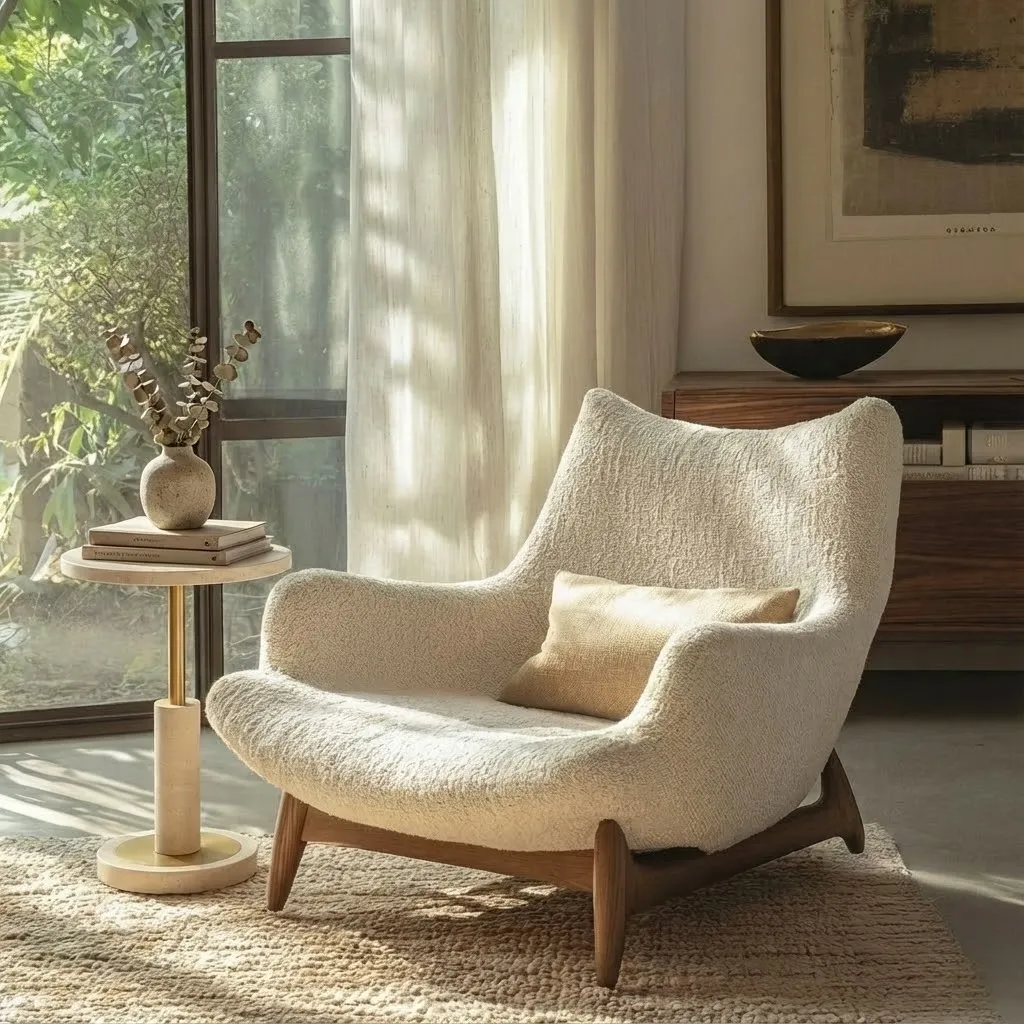
Modular furniture systems enable room reconfigurations without purchasing new items. Sectional sofas adjust to different room geometries, storage units expand as possessions accumulate, and multi-functional furniture serves evolving purposes across life stages.
Modular design succeeds through inherent flexibility. We’ve had clients reconfigure modular sofas from L-shaped apartment configurations to linear villa arrangements without purchasing additional components—simply rearranging existing pieces. Modular storage systems expand vertically or horizontally as collections grow, which matters more than people realize until managing years of accumulated belongings. Dining tables extending for entertaining or contracting for daily family meals eliminate the need for separate dining solutions.
At Majestic Home, our modular furniture collections specifically anticipate Dubai’s typical lifestyle transitions. We design sectional components functioning in both 800-square-foot apartments and 3,000-square-foot villas because we understand families relocate between these property types. Storage systems beginning in nurseries evolve into teenage bedrooms and eventually home offices. This continuity eliminates waste and expense of complete furniture replacement during moves.
Planning for Family Growth & Remote Work
Interior planning for expanding families requires furniture serving multiple age stages and flexible room designations transitioning from nurseries to study spaces to guest accommodations. Remote work integration demands dedicated workspace maintaining professional functionality without dominating residential areas.
Family expansion presents predictable spatial challenges that somehow catch people unprepared. Nurseries become toddler spaces requiring different storage and safety features. Play areas convert to homework zones needing desk space and organizational infrastructure. Teenage years introduce privacy requirements and social gathering spaces. Guest rooms serve visiting relatives, then transform into home offices or hobby areas as children mature.
Intelligent planning addresses these progressions initially. Convertible cribs transform into toddler beds and eventually daybeds—we’ve had examples progress through all three stages while maintaining quality appearance. Storage systems designed initially for toys accommodate books, electronics, and clothing as children age. Neutral color foundations permit simple updates through bedding and accessories rather than complete room renovations.
Remote work integration requires equal consideration. We learned this lesson in 2020 when everyone suddenly needed home offices. Dedicated office spaces prevent work from consuming living areas while maintaining professional functionality—critical for video conferences. Appropriate lighting, acoustics, and storage ensure productivity without sacrificing residential comfort. We design home offices that close visually and acoustically when work concludes, preserving the psychological boundary between professional and personal life that remote workers desperately need.
Strategic Fitout Approaches for Villas, Apartments & Investment Properties
Leading fitouts in 2026 apply distinct strategies based on property category. Apartments emphasize space efficiency and modularity, villas focus on material excellence and custom solutions, while investment properties require durability and tenant attraction balanced against return expectations.
Dubai’s property categories demand customized approaches. What succeeds brilliantly in luxury villas fails practically in compact apartments. Investment property fitouts face different constraints than owner-occupied residences. Through work across all property types, we’ve developed specific strategies for each.
Apartments & Space-Efficient Living
Apartment fitouts maximize vertical storage, employ multi-functional furniture, and utilize visual consistency to enhance perceived space. Built-in solutions and precisely fitted furniture extract maximum utility from every square meter without creating confined conditions.
Compact apartment living demands efficiency. Every square meter serves multiple functions or represents wasted space. Storage must be plentiful yet discreet. Furniture proportions must match rooms precisely to prevent circulation issues—we’ve encountered too many apartments where oversized sofas obstruct hallways.
Our apartment solutions prioritize vertical space utilization because that’s where unused volume exists. Floor-to-ceiling wardrobes capture otherwise wasted upper room volumes. Wall-mounted workspaces and fold-away dining surfaces liberate floor space when unnecessary. Custom-sized sofas and beds match room dimensions exactly, eliminating awkward gaps collecting dust or oversized pieces dominating small rooms. Consistent color palettes and streamlined forms create visual serenity making compact spaces feel larger than measurements suggest.
Multi-functional furniture proves essential in apartments. Ottomans provide seating, storage, and occasional table surfaces simultaneously. Wall beds transform bedrooms into daytime living areas—we’ve installed these in studios where they’re the difference between functional and cramped. Extendable dining tables accommodate entertaining, then contract for daily use. These solutions deliver flexibility without cluttering spaces with single-purpose furniture.
Villas & Premium Residences
Villa fitouts justify premium materials and bespoke construction given larger budgets and extended ownership periods. Custom solutions for distinctive architectural features, integrated smart home technology, and cohesive design across multiple spaces create unique properties maintaining value.
Luxury villas present opportunities for exceptional interior design that apartment budgets cannot support. Larger budgets enable premium materials delivering superior performance and aesthetics across decades. Extended ownership periods justify custom solutions optimized for specific spaces and family requirements. Architectural features like soaring ceilings, unique room proportions, and outdoor integration demand bespoke approaches that mass-produced furniture cannot address.
Villa projects showcase our complete capabilities. We design furniture responding to unique architectural elements, transforming potential challenges into distinctive features. Custom dining tables sized perfectly for formal dining spaces—not slightly undersized or oversized, but exactly appropriate. Sectional sofas engineered for spacious family rooms with optimal seating capacity and conversation dynamics based on actual room acoustics and sightlines. Built-in libraries transforming architectural niches into functional beauty rather than awkward dead zones.
Material selection in villas prioritizes longevity and luxury. Premium hardwoods, natural stone, superior upholstery fabrics, and artisan craftsmanship create interiors improving with age rather than deteriorating. We’ve observed 20-year-old solid wood furniture developing beautiful character while cheap alternatives disintegrated. Smart home integration becomes seamless when planned during fitout rather than retrofitted later—and we’ve managed sufficient retrofit challenges to understand the difference matters.
Investment & Rental Properties
Investment property fitouts balance durability against tenant attraction, using quality materials withstanding turnover while maintaining appealing aesthetics. Neutral designs maximize tenant pool size, and strategic quality investments reduce maintenance expenses and vacancy periods.
Investment properties face unique constraints. Fitout costs must generate acceptable returns through rental premiums, reduced vacancies, or lower maintenance expenses. Materials must withstand multiple tenants and varied treatment standards. Aesthetics should appeal broadly rather than reflect personal preferences—landlords imposing specific stylistic preferences unnecessarily limit their tenant pool.
Our investment property solutions focus on strategic quality placement. We invest in durable flooring, robust cabinetry, and quality fixtures reducing maintenance calls and replacement frequency. Through managing numerous rental turnovers, we understand exactly which components fail first and cost most to replace. Furniture packages for furnished rentals prioritize cleanability, stain resistance, and structural resilience over cutting-edge design. Neutral color schemes and contemporary styling attract broad tenant demographics without appearing cheap.
This approach delivers measurable financial benefits we’ve tracked across client portfolios. Quality materials reduce turnover costs and maintenance emergencies—fewer urgent calls about broken cabinet hardware or failed drawer mechanisms. Attractive interiors command rental premiums and lease faster, which matters more than landlords often realize until covering carrying costs during extended vacancies. Durability extends replacement cycles, improving long-term returns substantially.
Practical Interior Design & Fitout Strategies 2026
Material Selection for Durability
Climate-appropriate materials for Dubai include solid hardwoods like oak and walnut sealed for humidity resistance, high-pressure laminates for cabinetry, performance fabrics with stain resistance, and powder-coated metals for hardware. Avoid particleboard, unsealed wood, delicate natural fibers, and materials lacking heat tolerance.
Material performance determines furniture lifespan more than any other factor. Inappropriate materials fail regardless of construction quality or design excellence. Dubai’s climate eliminates entire material categories performing successfully elsewhere—we learned this through expensive early mistakes.
Solid hardwoods properly sealed for humidity perform exceptionally well. Oak, walnut, and teak withstand temperature variations and moisture exposure common here. High-pressure laminates offer durability and aesthetics for cabinetry and surfaces without maintenance complications of some natural materials. Performance fabrics engineered for commercial hospitality applications handle residential use, spills, and cleaning without degradation—critical with young children or frequent entertaining. Powder-coated metal hardware resists corrosion from humidity and air conditioning condensation destroying standard finishes.
Materials to avoid include particleboard, which expands and deteriorates in humidity within two to three years. We’ve examined sufficient failed particleboard furniture to never specify it. Unsealed wood absorbs moisture and warps predictably. Delicate natural fibers like silk and raw linen degrade rapidly under Dubai sunlight and climate stress. Brass and chrome hardware corrode unless properly sealed—we now exclusively use powder-coated or marine-grade finishes.

Neutral Foundations with Flexible Accents
Base design on neutral flooring, walls, and major furniture pieces in warm grays, soft whites, and natural wood tones. Layer personality through textiles, artwork, lighting fixtures, and decorative accessories easily updated as preferences evolve without touching foundational elements.
The layered approach to interior design separates permanent investments from temporary expressions. Neutral foundations provide visual calm and enduring appeal. They photograph well for property marketing. They attract broad preference ranges, important for resale and rental value. Most importantly, they don’t date rapidly or require replacement when trends shift—and trends shift constantly.
Warm grays, soft whites, beiges, and natural wood tones form ideal foundation palettes for Dubai homes. These colors work across architectural styles, reflect light enhancing space perception, and complement virtually any accent color scheme. When applied to flooring, walls, and major furniture pieces, they create sophisticated backgrounds for personal expression without limiting future options.
Personality and current style enter through easily changeable elements. Throw pillows and blankets update living rooms seasonally without major expense. Artwork rotates based on mood and discovery. Lighting fixtures make dramatic statements without permanent commitment—replacing pendant lights takes minutes. Rugs define spaces and introduce color without installation complexity. This approach allows style evolution without renovation budgets, important when occupying the space for years.
Storage-Centered Design
Adequate storage prevents clutter and extends usable space. Plan storage for 150% of current possessions to accommodate accumulation. Integrate storage into architectural elements through built-in wardrobes, under-stair solutions, and custom cabinetry rather than relying on freestanding furniture consuming floor space.
Insufficient storage undermines interior design faster than almost anything. Clutter accumulates when possessions lack designated locations. Freestanding storage furniture crowds rooms and creates visual disorder. Inadequate organization causes daily frustration and wastes time searching for items—we’ve had clients estimate they spend 30 minutes daily just locating things.
We recommend planning storage capacity for 150% of current possessions based on years of observation. Households accumulate items over time in predictable patterns. Children bring toys, books, and equipment. Hobbies generate specialized gear. Seasonal items require secure storage. Professional wardrobes expand. Planning excess capacity prevents future storage crises forcing expensive additions.
Built-in storage solutions maximize efficiency while minimizing space consumption. Floor-to-ceiling wardrobes utilize vertical room height that freestanding furniture wastes. Under-stair volumes transform from dead space to functional storage—we’ve created entire utility closets beneath staircases. Window seats incorporate drawers or lift-top access. Kitchen pantries extend to ceilings rather than stopping at arbitrary heights. These integrated approaches deliver far more storage per square meter than freestanding furniture while maintaining clean visual lines.
Pro Tip: Future-Proofing Spaces Without Major Renovations
Install electrical outlets every three meters along walls at both floor and desk height to accommodate future furniture arrangements and technology requirements—we’ve learned this through too many projects where outlet placement limited furniture options. Choose adjustable shelving systems that reconfigure as storage requirements change rather than fixed shelves locking you into one configuration. Select neutral wall colors working across multiple furniture styles and life stages. Invest in quality lighting with dimming capability to adjust ambiance for different activities—the same room needs different lighting for homework versus entertaining. Plan window treatments providing both privacy and light control for varying room purposes. These foundational choices enable major function changes with minimal renovation costs later.
Frequently Asked Questions
What characterizes top interior designs in Dubai?
Top interior designs in Dubai combine climate-appropriate material selection, adaptable spatial planning, and premium furniture serving households across lifestyle changes. They prioritize long-term value through durability and flexibility over short-term aesthetic trends.
Through years working in Dubai, we’ve learned that exceptional design means more than beautiful spaces. How property investment timelines demand extended durability justifying higher initial investments. The best designers balance aesthetics with these practical realities, creating homes remaining beautiful and functional for years while adapting to family evolution.
Why is premium furniture essential for Dubai living?
Premium furniture in Dubai withstands extreme heat, humidity variations, and intensive use without structural failure or aesthetic deterioration. Low-quality furniture typically requires replacement every three to four years under Dubai conditions, while quality pieces maintain functionality and appearance for ten to fifteen years, delivering long-term value.
Dubai’s climate accelerates furniture deterioration in ways surprising people from temperate regions. Heat exposure weakens adhesives and finishes. Quality furniture engineered for these conditions uses appropriate materials, robust construction methods, and climate-tested finishes. The cost difference between quality and budget furniture disappears completely when calculated across multiple replacement cycles—and we’ve performed these calculations extensively for clients.
Are custom fitouts worthwhile investments in Dubai?
Custom fitouts eliminate spatial inefficiencies, ensure optimal material performance in Dubai climate, and accommodate specific lifestyle requirements that mass-produced solutions cannot address. While initial costs exceed ready-made alternatives, custom fitouts typically deliver 30-40% better space utilization and last twice as long, justifying higher upfront investment.
Custom fitouts optimize every decision for specific circumstances. Room dimensions, architectural features, storage requirements, aesthetic preferences, and usage patterns all influence design. Mass-produced furniture forces compromises across all these factors—we observe it constantly. Custom solutions eliminate these compromises, maximizing utility and satisfaction. The result serves clients better daily while lasting longer and maintaining higher property value, tremendously important for resale or rental.
How does interior planning reduce future renovation expenses?
Strategic interior planning anticipates lifestyle changes through modular furniture, adaptable room configurations, and excess storage capacity. This preparation allows accommodation of family growth, work pattern changes, and living preference shifts without structural modifications or complete furniture replacement, typically preventing 60-80% of renovation expenses over ten years.
Trendy finishes require updates as styles evolve. Cheap materials fail prematurely, forcing replacement. Strategic planning prevents these issues by building adaptability, quality, and timelessness into original design. The investment in thoughtful planning pays enormous dividends through avoided future expenses—dividends we’ve tracked across client projects spanning over a decade
Does Majestic Home provide complete fitout services across Dubai?
Yes, Majestic Home delivers comprehensive interior design and fitout services throughout Dubai and all UAE emirates. Our services include space planning, custom furniture design and manufacturing, material selection, installation, and post-completion support. We manage projects from initial consultation through final installation, delivering complete solutions for apartments, villas, and investment properties.
Based in Fujairah with service coverage across Dubai, Abu Dhabi, Sharjah, Ajman, Umm al Quain, we combine manufacturing capabilities with design expertise. We control the entire process from concept through installation, ensuring quality, timeline adherence, and budget management in ways multi-vendor approaches cannot match. Our team understands Dubai’s specific requirements including climate considerations, common property types, and typical lifestyle patterns from years of hands-on experience.
Key Takeaways
Top interior designs in Dubai prioritize resilience through climate-appropriate materials, adaptable spatial planning, and premium furniture engineered for long-term performance. Successful fitouts anticipate lifestyle changes including family growth, work pattern shifts, and property transitions, preventing costly future renovations through strategic initial planning. Custom furniture and built-in solutions deliver superior space utilization, material durability, and functional adaptability compared to mass-produced alternatives. Investment in quality fitouts generates financial returns through extended furniture lifespan, reduced replacement cycles, maintained property values, and avoided renovation expenses. Leading fitouts in 2026 separate permanent foundational elements from easily updated accents, allowing style evolution without touching core infrastructure or requiring major expense.
Conclusion
Your residence should evolve with your life. Top interior designs in Dubai recognize that homes serve families across years of change, climate challenges, and shifting requirements. Strategic planning, superior materials, and thoughtful furniture selection create spaces adapting gracefully rather than requiring expensive interventions every few years.
At Majestic Home, we deliver top interior designs in Dubai through thoughtful planning, durable fitouts, and premium furniture that endures, adapts, and retains value. Our approach centers on understanding life trajectories, not just current moments. We design for the family you’re becoming, the career changes ahead, and the climate realities of Dubai living that cannot be ignored.
Every project begins with listening. We learn how clients utilize their spaces, what frustrates them about current arrangements, and how they envision their lives evolving. This understanding informs every design decision, ensuring solutions serve genuine needs rather than impose aesthetic visions. We specify materials proven across years of UAE implementation—not theoretical performance, actual performance. We engineer furniture for both beauty and longevity because we’ve witnessed what fails and when. We plan spaces welcoming change rather than resisting it.
The result is interior design proving its value year after year. Furniture remaining beautiful and functional through childhood dynamics, career changes, and home relocations. Fitouts accommodating growing families without structural modifications. Investments maintaining property values and delivering daily satisfaction rather than daily frustration.
Speak with our design team today to create a space built for the future. Majestic Home serves Dubai and all UAE emirates with comprehensive interior design, custom furniture manufacturing, and complete fitout services. Transform your property into a home that adapts, endures, and enhances life for years to come.

